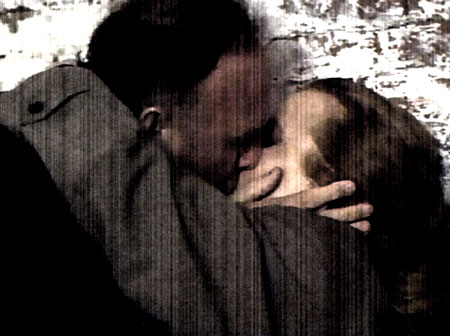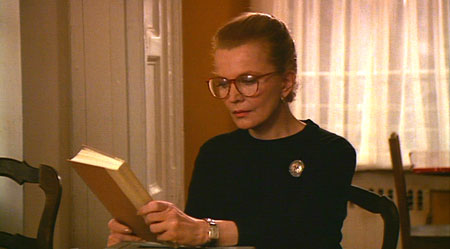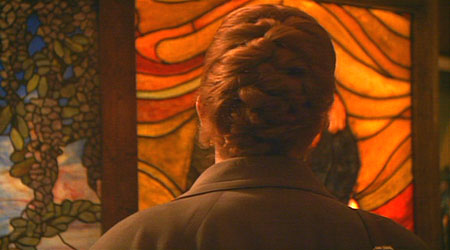“I wondered if a memory is something you have, or something you’ve lost.”

It’s late night and, as often happens, I’m chatting with Sara on the phone while I noodle around in one script project or another. Tonight we’re talking about Woody Allen, and I explain some of what I think is so great about his work. And I also find myself explaining the relationship between Woody and Soon-Yi. No, she’s not his daughter. He’s not even her adopted father. Her last name is Previn. Andre Previn and Mia Farrow adopted her years ago. He’s not even a father figure to her, for he never lived in the same house. In fact, he hardly ever came around. So there.
Anyway, that’s all beside the point. In talking to Sara I remember that there’s still one Woody Allen movie I haven’t seen. After September came out and I found it such a drag, I opted to skip Another Woman. I hadn’t yet “discovered” his work. That happened in most glorious fashion in 1988 and 1989. If I had, I might have sucked up the resistance and just gone. But I missed it, and I never got around to it since.
So after I get off the phone with Sara and wrap up the work for the morning (it is 1:30 AM) I stretch out on the sofa and drop the DVD in the player. It’s simpler than many of his works. Very leisurely, yet economical, and full of Woody’s stock characters. There are a lot of people saying things like, “I do love a good opera,” and “I’ve staged Brecht,” which is, like, a totally different world from the one I live, but his films are so warm and comfy, it doesn’t really matter. What struck me more than anything else was the piece of music that Allen uses throughout. I have to do a little research the next morning, but I discover that it is Erik Satie, a composer whose work I know I’ve heard but don’t actually just plain know. It’s gorgeous, and wistful and melancholy and actually brought tears to my eyes in the film’s final moments.

It’s the first of the three “Gymnopedies,” and though it was composed for piano, Woody uses a full orchestration of the piece. I hop on the internet and tracks down as many versions of it as I can, without actually finding the one I want. I’ll have to raid the Amoeba collection later and see what I can find. In the meantime, click on the folowing two links to hear what the heck I’m talking about.
Link One: Erik Satie: Gymnopedie #1 – This one is a fine version by pianist Robin Alciatore, although I like a version I grabbed on iTunes by Pascal Roge a little better.
Link Two: The final speech by Gena Rowlands in Another Woman, which uses the fully orchestrated version to terrific effect. It’s especially poignant in the context of the film, because by the time you reach this cue, you’ve heard it twice before in key moments of the film. As she reads from the novel, the music binds it all together and drops us into the end credits, where we can stretch and ruminate and stumble off to the bedroom to pass into strange dreams about rain, wine and antique shops.

Good stuff.




















